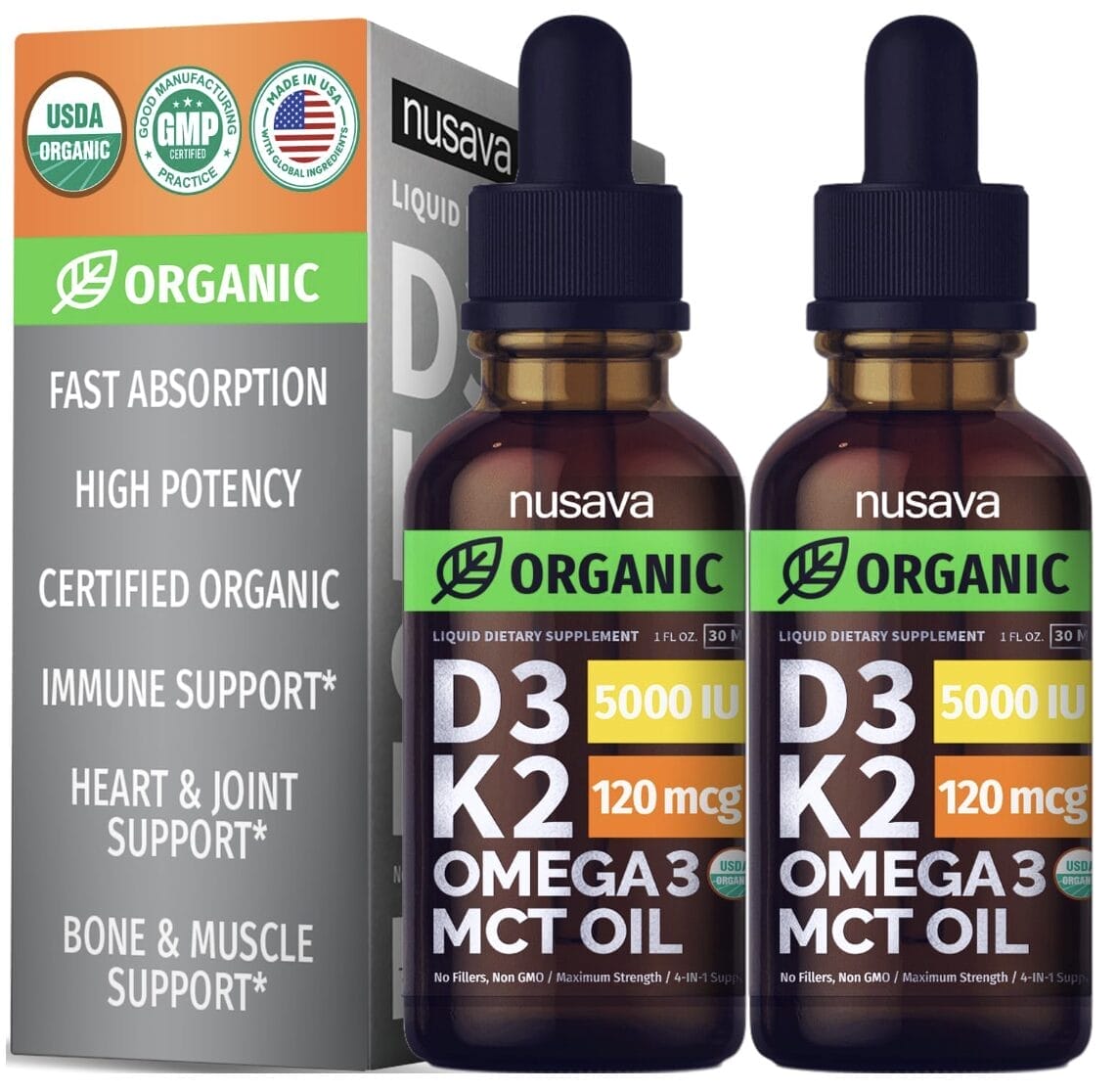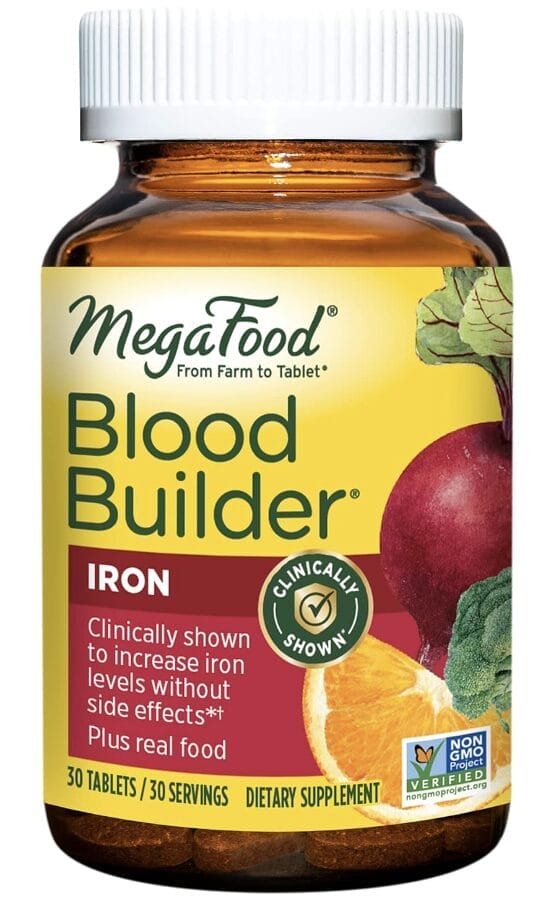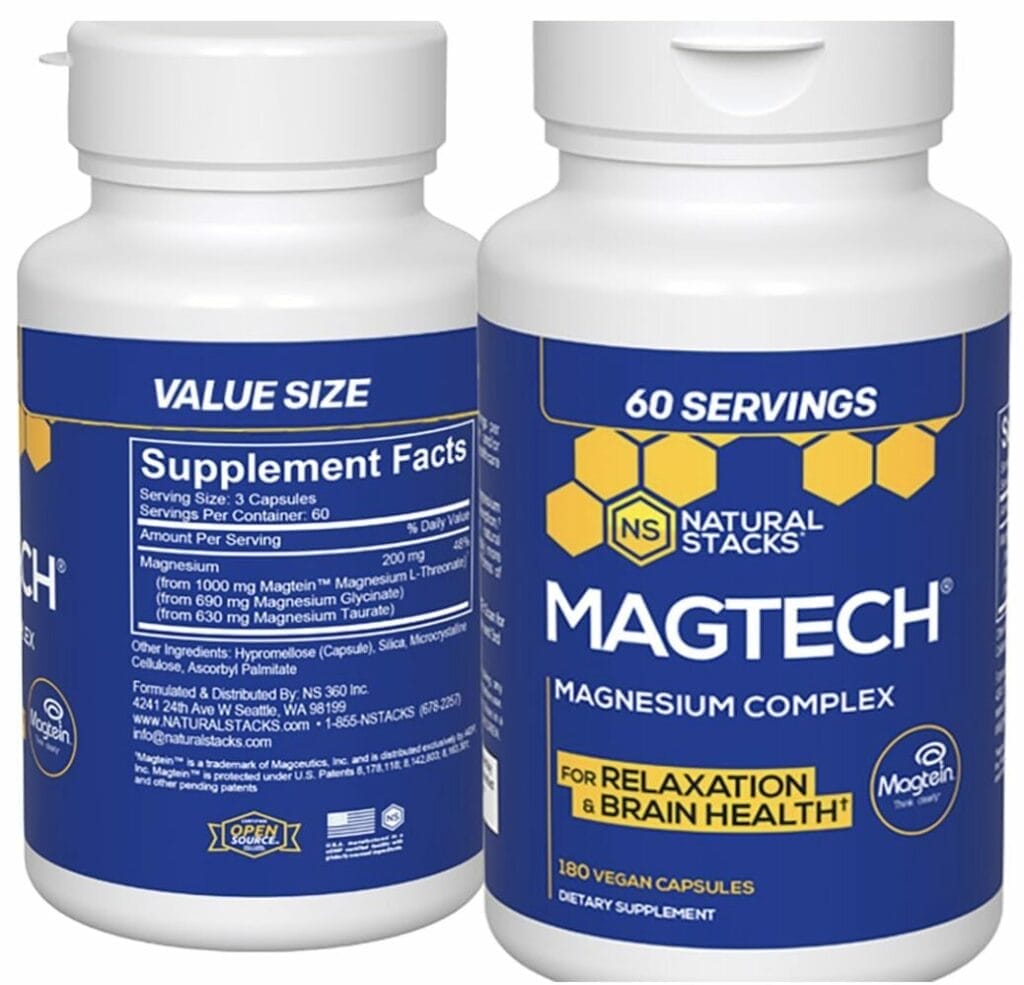Ever found yourself caught up in the whirlwind of life, pondering the intricacies of health? If so, you’re not alone. And if not, maybe this article will have you start thinking about your health.
Join me on the journey to discover the mysteries of supplementing our unique eating habits. Find out how a regular person seeks wellness in the chaos and what supplements they need.
The answer to “What Supplements Should I Take?” is…it depends. It depends on what your eating habit is like and what your bloodwork shows.
Let’s understand the process of figuring out your needs in this article together.
Save and Share This Article…

There are endless options out there. An example of one of the most confusing ones is magnesium—do I need it?
If so, is it citrate, oxide, sulfate, chloride, glycinate, malate, L-threonate, and yes, there’s more, or is it the infinite combinations of them? This is just the beginning of my supplement saga, and here’s how I refined the chaos into a nutritional routine that fits my groove.
Introduction
As the pages of my life turned, hitting my mid-40s was like a wake-up call. Health became a topic that couldn’t be ignored.
Looking online at the available vitamins, I searched for natural goodness with ingredients like blueberries and turmeric. I bought myself a simple one-a-day vitamin supplement and wondered what the fuss was about.
But let’s keep it real: I’m no expert on the path to wellness. Here I am, navigating through a sea of contradicting information online. How do you sort through all this information? As a newbie, I set out to conquer the nutrient world, aiming to answer the question, ‘What supplements should I take?’
And so my journey into the world of wellness kicked off.
Understanding Nutritional Needs:
Starting on this journey involves delving into your nutritional needs.
My realization struck as I analyzed my mom’s bloodwork, aiming to determine her supplement requirements. Applying the same approach to myself in my 40s, I took stock of the vitamins and minerals in my one-a-day pill, realizing that what worked for others might not be suitable for me.
4 Steps to Find the Right Supplements:
1. Identify your needs:
The crucial first step is understanding your specific requirements.
Journal and analyze your diet, and consult with a healthcare professional for bloodwork to pinpoint specific needs based on your individual health profile. I use Cronometer, a user-friendly food diary app, which streamlines journaling based on your profile’s recommended requirements.
You don’t have to pay for this essential tool to streamline your analysis; it’s a time-saving tool compared to manual calculations of all your nutritional intake.
Having information from two sources, such as Cronometer and bloodwork, is essential to your supplementation journey.
Nutrient deficiencies may not immediately show in bloodwork, as it often takes years. Moreover, what appears on bloodwork may not result from a deficiency in your current diet; there could be deeper absorption issues.
2. Research whole foods:
Explore whole foods that naturally fulfill your nutritional needs. Look for practical and enjoyable options that resonate with your taste buds and lifestyle.

Do an online search of ‘what food is rich in xxx?’ to discover a natural source that your body truly craves. Distinguish between cravings for nutritional benefits and those developed through habit.
One is the path of wellness, and the other is a rut leading in the opposite direction.
Explore recipes that incorporate these nutrient-rich foods, making the process of integrating them into your daily routine enjoyable and sustainable. The goal is to find whole-food solutions that meet your nutritional needs and align with your culinary preferences.
For example, Cronometer highlights my daily vitamin A deficiency. Despite falling within the healthy range on my bloodwork, I chose to correct the deficiency to prevent future issues.
Sometimes, deficiencies may not manifest until they appear on the bloodwork with physical symptoms.
Being honest with ourselves is crucial on a self-improvement journey. Recognizing that I don’t often cook with carrots or yams, I admit to this potential problem and find ways to resolve it.
I explored whole foods rich in vitamin A.

Raw carrot sticks dipped in vegan dips proved to be a delightful and practical solution for me. I find them easy to snack on while cooking. Are you like me, often hungry before starting to cook?
Through this exploration of whole foods, I successfully eliminated the need for vitamin A supplements.
More recently, I made a Polish sauerkraut soup that incorporated carrots. This recipe will also boost my vitamin A intake.
3. Practicality check:
Accessing the practicality of integrating whole foods into your routine plays a pivotal role.
While whole foods offer a wealth of nutrients, incorporating them into your daily life can be challenging or simply unenjoyable. Consider your schedule, cooking skills, and accessibility to specific ingredients.
If integrating whole foods proves challenging in certain aspects, strategize alternative methods, such as preparing batch meals or opting for convenient yet nutritious options.
This step ensures that your nutritional journey is not only beneficial but also feasible in the long run.
In instances where whole foods are not practical for you, it’s time to find the right supplements.

In my case, being less outdoorsy deprives me of vitamin D due to limited sun exposure. It’s crucial to note that while sunshine itself isn’t a whole food, it remains the most wholesome choice for obtaining vitamin D.
However, it’s worth mentioning that the rays our body needs for synthesizing vitamin D are blocked by all windows, so you can’t count on getting your dose while driving.
Since I can’t commit to 30 minutes of daily sun exposure, a vegan D3 supplement is now a part of my routine.
This decision exemplifies the balance between practicality and nutritional adequacy.
4. Supplement Selection:
Once you’ve identified specific gaps in your nutrition that whole foods or lifestyle habits may not fully address, it’s time to carefully select supplements.
Before starting any supplement regimen, it is very important to consult with healthcare professionals.
As we’ve established, your health is unique, and personalized advice from a healthcare professional ensures that the supplements are tailored to your individual needs.

When searching for the right supplements, prioritize brands that have undergone third-party testing. Unfortunately, supplements are not yet regulated by the FDA, and discrepancies between label claims and actual contents are common.
Additionally, look for supplements that align with your dietary preferences, ensuring that they complement your overall nutrition plan. Consider factors such as ingredient transparency, form (capsules, tablets, or liquids), and potential interactions with other supplements or medications.
This step ensures that your chosen supplements integrate into your lifestyle without causing disruptions.
Vital Vitamin Deficiency:
Vitamin A: It is essential for promoting healthy vision. Many vitamin A-rich foods aren’t part of my daily meals.
So I looked for a way to enjoy vitamin A-packed raw carrots. It’s the vegan dips that make raw carrots enjoyable. Now I snack on raw carrot sticks to boost my vitamin A intake without resorting to pills.
Vitamin C: My immune-boosting sidekick. Cronometer identified my deficiency in Vitamin C.
Recognizing I don’t have food rich in vitamin C handy in the van all the time, I chose to supplement.
I found a supplement with added riboflavin. Riboflavin is beneficial for my occasional split at the mouth’s edge and coldsore.
Therefore, this combination of vitamin C and riboflavin works perfectly for me.
By consciously sipping on lemon water or tea and occasionally taking a vitamin C pill, I fulfill my body’s requirement for vitamin C.

Vitamin D: Admitting my lack of sun exposure, I rely on vegan D3 supplements to ensure everything from my bones to my mood stays blissful.

I’ve taken different brands in the past. This is a one of the brands I trust.
Vitamin E: As a protection against stress, sunflower seeds and avocados are now staples for sufficient vitamin E without risking high concentrations in pills. Simply switching cooking oil from olive oil to sunflower seed oil also helps with meeting my daily needs.
Vitamin B12: Powerhouse for energy and crucial for well-being. As a vegan, it is practical to opt for a B12 supplement to maintain optimal energy levels and support various bodily functions.
Vitamin B12 is produced by bacteria, not animals or plants. Although the bacteria in our body produce B12, it’s not in sufficient quantity. Factory-farmed cows are usually supplemented with vitamin B12, so digesting the meat of these cows will give you B12 from the accumulation of the supplements in their feed.

I also like this brand. Many people prefer liquid form, but I still like pills. Liquid form may absorb faster. Make it a habit and keep up with it; you shouldn’t need it as if it’s an emergency.
Indispensable Mineral Insights:
Zinc: My secret weapon for strengthening the immune system. I take it occasionally before bed, especially when I sense the first sign of sickness.
This often works like magic, allowing me to wake up feeling healthy again.

This is my go-to zinc.
Iron: A vital source of energy and when fatigue kicks in. Taking iron during the day for for me is an energy boost and it’s without risking a restless night.

I just ordered the one pictured because I like the real food and the vitamin C, which enhances the absorption of iron. It also has B12, so I won’t need to get B12 separately They work well with each other, so this combination works for me. Win win!
Magnesium: Post-workout bliss. Magnesium glycinate relaxes my muscles and aids with speedy recovery. This ensures that I have a restful sleep. Here’s a helpful chart to assist you in choosing the right magnesium type.
| Magnesium Type | Core Benefits |
|---|---|
| Magnesium Citrate | Treats occasional constipation (among the most bioavailable) |
| Magnesium Glycinate | Relaxes muscles, reduces anxiety and stress and improves sleep quality (high absorption rate and gentle on digestion) |
| Magnesium Oxide | Relieves constipation, indigestion, heartburn and is not used for magnesium deficiencies (worst on digestion for some and hardest for absorption) |
| Magnesium L-Threonate | Potential cognitive benefits crosses the blood-brain barrier (easily absorbed) |
| Magnesium Orotate | Supports heart health and cellular energy (easily absorbed) |
| Magnesium Glycinate Lysinate | Relaxes muscles and contributes to restful sleep (easiest on digestion) |
| Magnesium Malate | Relieves muscle pain, increases energy production, can relieve symptoms from fibromyalgia and aids digestion (less laxative effect) |
| Magnesium Aspartate | Supports energy production, heart health and the nervous system |
| Magnesium Taurate | Promotes cardiovascular health by regulating heart rhythm, blood sugar, and supporting healthy blood pressure. |
| Magnesium Carbonate | antacid and a laxative used for symptomatic relief of heartburn, indigestion, and an upset stomach. |
| Topical ONLY Magnesium: | |
|---|---|
| Magnesium Sulfate | Used topically for muscle relaxation and as a bath soak (in epsom salt) |
| Magnesium Chloride | Used topically to support muscle function (more side effect if taken orally) |
I used to make a topical magnesium spray, which I spray directly onto my legs after a workout to relax them. Some people have a difficult time digesting magnesium; therefore, many people opt for topical muscle support. But this may just be good marketing.
Topical use of magnesium has not been proven scientifically; therefore, if you are deficient in magnesium, try the less laxative and easily digestible type of magnesium listed above.

This is a great magnesium complex that supports relaxation, cardiovascular, and brain health.
Selenium: Crucial to various bodily functions, selenium is a nutrient that demands balance. Excessive intake can lead to toxicity, underscoring the importance of moderation.

Cronometer highlights a deficiency in selenium, prompting me to find a simple yet effective solution. The humble Brazil nut—one a week—works like magic in maintaining that delicate balance.
It’s another whole food remedy to address my deficiencies.
Supplement Synergy & Caution:
Let’s take the next step and fine-tune your supplement strategy. Some vitamins and minerals complement each other, while others may hinder each other.
Taking supplements with a meal is crucial for optimal absorption, mimicking our evolutionary process of absorbing nutrients from whole foods.
Here’s the breakdown:
1. Mineral Efficiency:
Minerals engage in a competition for absorption. Space them out. For example, take iron at least 2 hours apart from other minerals like calcium.
While opinions on simultaneous mineral intake may differ, what is my advice? Keep them separate. It’s a practical move to ensure effectiveness without potential clashes.
2. Oil-Soluble Tactics:
Vitamins A, D, E, and K are fat-soluble; pair them with a meal or an oil-containing supplement for optimal absorption.
3. Best Combo:
For calcium, vitamin D helps with the absorption, and vitamin K2 guides it where it needs to go.
Iron enhances absorption with Vitamin C.
Vitamin D and Omega-3 support each other – Vitamin D improves Omega-3 absorption. and Omega-3 amplifies the effectiveness of Vitamin D.
Magnesium and Vitamin D work together – Vitamin D boosts magnesium absorption, and magnesium aids in converting Vitamin D into its active form.
Consult with Healthcare Professionals:
Before you start on a supplement regimen, it’s crucial to consult with healthcare professionals. They can offer personalized advice based on your health history, ensuring that supplements align with your overall well-being.
This step adds a layer of safety, ensuring that you’re making informed decisions tailored to your unique needs.
I believe taking the initiative and taking responsibility for your body and its needs are essential. Your body, your experience—that’s what matters most.
Adaptation and Analysis:
As my body and diet shift, the supplement routine evolves.
Tiredness eases off, nudging iron to the sidelines as magnesium takes the stage post-workout and vitamin C steps up as a daily must during those under-the-weather days. It’s like a personal puzzle, adapting to the flow of our bodies and diets.
Many other vitamins aren’t mentioned here because my unique diet covers them.
Every person has distinct cultural backgrounds and eating habits. Your nutritional needs are personal, and journaling your diet and analyzing bloodwork are key practices.
There’s no one-size-fits-all supplement.
But if you just want a one-a-day supplement to complement your diet initially, this one is a great option:

I am grateful for apps like Cronometer, which empowers us to stay on top of our nutritional needs. We have power when we utilize Cronometer.
Whole Foods vs Supplements:
While whole foods take the lead, supplements become essential when their intake falls short.

Every food item contributes a mix of nutrients; some excel in certain aspects but may lack others.
I don’t find it necessary for me to strictly adhere to the 100% recommended dosage for any supplement. Therefore, I take half of the recommended amount every few days. If your bloodwork indicates a deficiency in a specific nutrient, it might be necessary for you to follow the 100% recommended dosage or even exceed it at times. Consulting with your doctor plays a vital role in this journey.
Connecting the Dots – A Holistic Journey:
As I reflect on this holistic journey, the dots connect beautifully.
Understanding my unique nutritional needs led me to explore whole foods through online research. The more natural the food, the fewer chemicals – aligning with my lifestyle preferences.
Practicality acted as my guide, steering me toward the right supplements when incorporating whole foods proved challenging.
It’s a dance between what’s nutritious and what’s feasible—a rhythm we all must master.
Conclusion: A Comprehensive Roadmap:
Life’s only constant is change, leading me to discover what suits me today. But what’s right now may differ tomorrow.
This ever-evolving journey can be blissfully simple with Cronometer; take control of your health.
Remember, it’s your health – be the captain of your well-being. The steps to identify needs, research whole foods, perform a practicality check, select supplements, and consult with healthcare professionals serve as a roadmap for others taking on the journey of health discovery.
Share your thoughts, experiences, or questions in the comments below. Whether you have favorite supplements, tips on incorporating whole foods, or challenges you’ve overcome, your input can inspire and assist others on their health quest.
Pin and share with friends, family, or anyone else who might benefit. Let’s expand the knowledge of health and empower more individuals.

May your journey be guided by health and filled with simple bliss. And may your well-being grant you many moments of ‘dolce far niente’ for years to come.
Disclaimer: The information provided in this blog is based on personal experiences and research. It is not intended to replace professional medical advice, diagnosis, or treatment. Always seek the advice of your physician or other qualified healthcare providers with any questions you may have regarding a medical condition. The author is not a healthcare professional, and individual results may vary. Any reliance on the information in this blog is at your own risk.



Leave a Reply